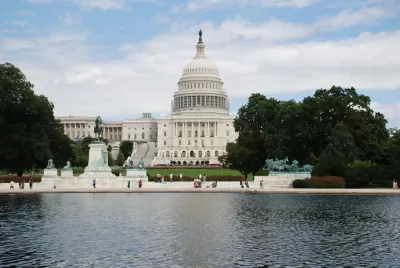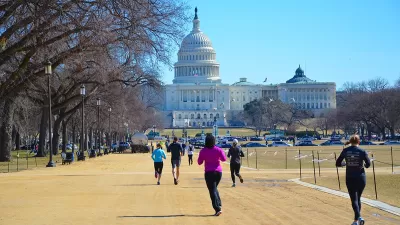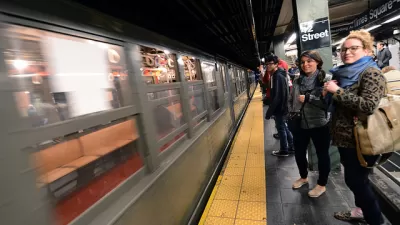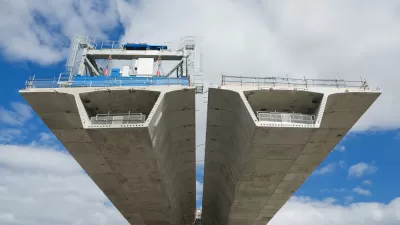Unlike the House Appropriations Committee's DOT budget that reduces spending by almost 4 percent from current levels and eliminates the TIGER grant program, its Senate counterpart increased transportation spending, including the TIGER grant budget.

The Senate Appropriations Committee voted 31-0 on Thursday to increase transportation spending by $978 million, or 5.5 percent above current levels. It also increased the budget for the Transportation Investment Generating Economic Recovery (TIGER) grant program by 10 percent to $550 million.
"Sen. Susan Collins (R-Maine), who chairs the Senate subcommittee on transportation and housing, said it was important to increase funding for the grant program given the poor condition of the nation’s infrastructure," reports Melanie Zanona for The Hill.
She was heard on a hot mic earlier in the week calling the administration’s approach to its budget proposal “incredibly irresponsible.”
Another difference with the House Appropriations Committee, which passed its transportation budget on July 17 by a 31-20 vote, was the level of funding committed to the Capital Investment Grants (CIG) program administered by the Federal Transit Administration. While both committees decreased spending for this vital program, the House did so by $659 million, or 28 percent, to $1.7 billion.
The Senate bill provides a total of $2.133 billion for the the CIG program, "fully funding all current 'Full Funding Grant Agreement' (FFGA) transit projects, which is $280 million below the FY2017 enacted level," according to Chairman Collins.
"Amtrak: The Senate bill rejects the Administration’s proposal to eliminate long-distance routes and provides Amtrak with the fully-authorized level of $1.6 billion, $105 million more than fiscal year 2017," notes the minority news release. The House committee had authorized $1.42 billion which is $67 million less than the FY2017 enacted level.
Both the House and Senate Appropriations Committees rejected the 13 percent DOT budget cuts in Trump's budget and fully fund the Essential Air Service program that provides air service in small and rural communities, which which proposed for elimination.
FULL STORY: Senate panel approves funding boost for Transportation Department

Montreal Mall to Become 6,000 Housing Units
Place Versailles will be transformed into a mixed-use complex over the next 25 years.

Planetizen Federal Action Tracker
A weekly monitor of how Trump’s orders and actions are impacting planners and planning in America.

Four Reasons Urban Planners Can’t Ignore AI
It’s no longer a question of whether AI will shape planning, but how. That how is up to us.

Bend, Deschutes County Move to Restrict Major Homeless Encampment
City and county officials are closing off portions of an area known as Juniper Ridge where many unhoused residents find shelter, hoping to direct people to housing and supportive services.

High Housing Costs Driving Down Transit Ridership in LA
When neighborhoods gentrify and displace lower-income residents, transit ridership suffers, new research shows.

Iowa Legalizes Accessory Dwelling Units
A new law will allow property owners to build ADUs on single-family lots starting on July 1.
Urban Design for Planners 1: Software Tools
This six-course series explores essential urban design concepts using open source software and equips planners with the tools they need to participate fully in the urban design process.
Planning for Universal Design
Learn the tools for implementing Universal Design in planning regulations.
City of Mt Shasta
City of Camden Redevelopment Agency
City of Astoria
Transportation Research & Education Center (TREC) at Portland State University
City of Camden Redevelopment Agency
Municipality of Princeton (NJ)
Regional Transportation Commission of Southern Nevada





























